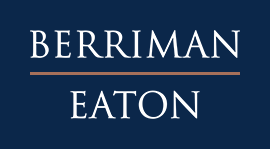Both housing sales and prices are expected to increase in the months ahead, the Royal Institution of Chartered Surveyors said.
Values will jump at least 3.3 per cent a year for each of the next five years and demand from buyers means transactions will steadily rise.
This is the most confident prediction by surveyors since the referendum vote on June 23 and puts price rises only slightly lower than their original forecast of four per cent.
The RICS survey was backed up by latest figures from Britain’s biggest mortgage lender Halifax which showed prices jumping 6.9 per cent in the year to end of August.
On a quarterly basis, house prices in the three months to August were 0.7 per cent higher than in the previous quarter, down from a 1.5 per cent rise noted in July.
The cost of a typical three bedroom semi is now £214,000 up from £205,000 in August 2015.
Earlier this week, house builder Redrow brushed aside fears over the Brexit vote as it posted a record annual profit haul and predicted an “excellent” year ahead.
Simon Rubinsohn, chief economist at RICS, said: “There are clear signs that the housing market is settling down after the initial surprise of the outcome to the EU referendum.
“Buyer enquiries did dip again in August but only modestly, and more significantly, sales expectations are beginning to edge upwards once again.”
After a five month lull, the number of surveyors seeing house prices rising started to grow in August.
For the sixth month in a row, more surveyors in London reported prices falling rather than rising, but in most other parts of the UK, prices showed signs of increasing.
East Anglia and the West Midlands had the strongest price growth, with balances of 30 per cent and 22 per cent of surveyors respectively in these areas reporting prices rising rather than falling.
In Wales, 13 per cent more surveyors reported prices rising rather than falling, and in Scotland and Northern Ireland the balance of surveyors reporting rising prices was 17 per cent.
For the first time since April, near-term house price expectations were generally positive in August, with a net balance of 10 per cent of surveyors expecting house prices to increase rather than decrease over the next three months.
Rics said a “real shortage of property for sale” is a key factor supporting house prices.
August demand for homes from buyers fell back in the traditionally slow summer season.
But surveyors reported that the pace of decline is easing off, the RICS report showed.
While house sales declined sharply after the referendum vote, the picture has now stabilised, it said.
Looking ahead, house sales are projected to increase across all areas of the UK in the coming 12 months.
Halifax said the seasonal slowdown saw monthly values drop slightly between July and August by 0.2 per cent and from 8.4 per cent on an annual basis.
Jonathan Hopper, managing director of Garrington Property Finders which helps wealthy clients buy homes in the south-east, called the figures were “reassuring.”
“These figures are further evidence that the post-Brexit property market is making a soft landing rather than slumping,” he said.
“With both supply and demand falling, the result is a benign stalemate – with average prices creeping up as the number of sales falls.”







